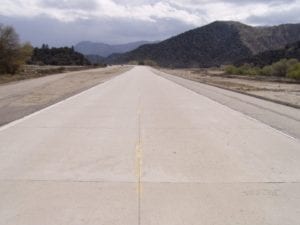With the increasing emphasis on sustainable transport, there has been steady demand for The Concrete Institute’s ‘Concrete Roads – a Sustainable Solution’ publication.
The free publication was authored by Bryan Perrie, The Concrete Institute’s Managing Director and globally-respected authority on concrete pavements, and covers the environmental, economic and social aspects of concrete pavements and draws on international experience to demonstrate that concrete pavements are a sustainable solution for South Africa. Perrie says in the introduction: “Sustainable pavements make efficient use of natural resources and respect the environment during their entire life cycle; they improve transport facilities for the entire community, provide services to society in terms of mobility, safety and comfort by means of judicious choices regarding design, construction, maintenance and demolition.” He believes that concrete pavements offer substantial benefits over the long term and – in economic terms – are often the most favourable solution when life-cycle costs are taken into account. “This is even more so when user costs are taken into account, as concrete requires minimal maintenance and results in less disruption to road users.” Concrete pavements, furthermore, provide benefits such as reduced fuel consumption, pollution reduction, storm water attenuation, local availability, recyclability, reduced heat island effect, reduction in street lighting requirements, labour-intensive construction, and improved skid resistance.“Concrete pavements have a crucial role to play in the provision of new infrastructure in SA as well as for the upgrading of existing pavement infrastructure, particularly in view of the increasingly regular shortage of bitumen.
“Concrete overlays and inlays provide an ideal solution for the upgrading of existing asphalt and unsurfaced pavements for all categories of traffic. The development of ultra-thin concrete pavements has added to the various type of concrete available to the road design engineer,” he states.





